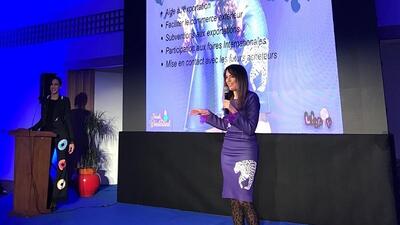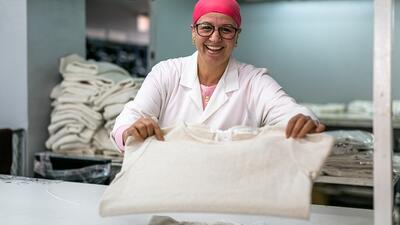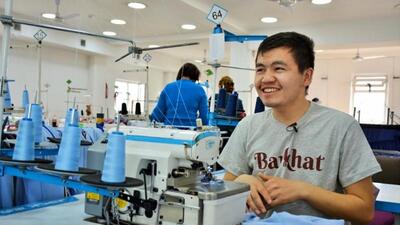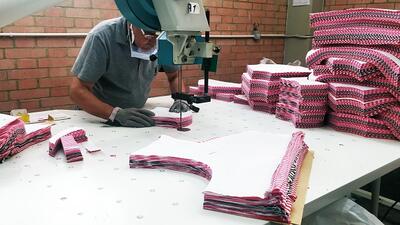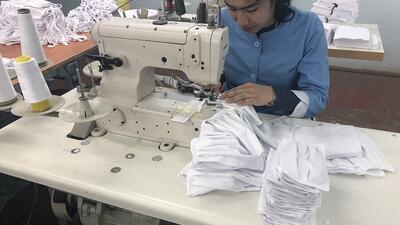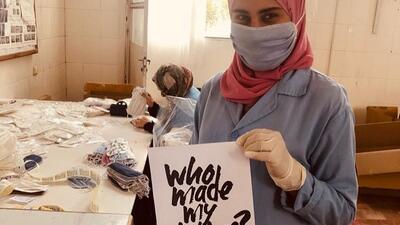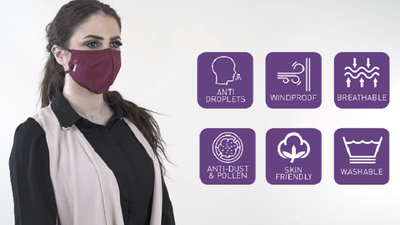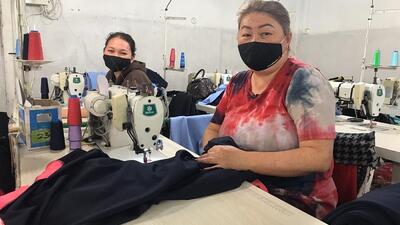Story: New avenues for Tajikistan’s textile and clothing sector (en)
Entrepreneurs running small and medium-sized enterprises (SMEs) in the apparel sector, representatives from the Tajik government and international development agencies attended the Second National Forum of Entrepreneurs of Textile and Garment Enterprises in Dushanbe.
The Union of Private Sector Development of Tajikistan (UPSDT), in cooperation with the Ministry of Industry and New Technologies of the Republic of Tajikistan and the International Trade Centre (ITC) GTEX programme organized the Forum.
It was the first time since the start of the COVID-19 pandemic that stakeholders from the textile and clothing sector met in person. The participants discussed the current situation of the sector and the impact of COVID-19 on Tajik companies. They also had the opportunity to reflect on prices and competitiveness of the country's production as well as future investment requirements and ongoing projects that assist in improving the national supply chain for cotton to clothing.
Fayzali Rajabov, UPSDT Chairperson of Board said, "2020 presented a range of new issues to the entire country. However, despite the challenges, most of the textile companies were able to adapt to new realities and new requirements of the textile market. The Tajik textile and clothing industry proved its capacity to readjust and diversify the production to manufacture masks and medical textiles.”
He noted that companies met the demands of the local market effectively and fulfilled corporate social responsibilities by supporting the government in its COVID-19 response.
GTEX National Project Coordinator, Saidmumin Kamolov, explained that the COVID-19 outbreak led to a shortage of equipment and spare parts, delays in dispatching goods and a decrease in orders. This resulted in many companies having to dismiss part of their staff or suspend activities.
He added that, there was a need to use the latest online technologies and invest in e-commerce for enhancing the competitiveness of the sector.
During the forum, the UPSDT members agreed to appeal to the relevant authorities and heads of institutions to support textile and clothing companies in their recovery efforts.
Participants highlighted the need to improve the business environment in the country, engaging in trade negotiations in global markets as well as in providing training to build expertise and professional knowledge at enterprise level. They also emphasized the need to strengthen the export competitiveness of the national cotton fibre production.
The forum also served to recognise the achievements and results of the sector. Eight companies received awards offered by the UPSDT and the Republican Committee of Trade Unions of the Textile Enterprise and Light Industry of the Republic of Tajikistan. Two companies supported by the GTEX programme, received awards for excellence as best exporting company.
GTEX
The International Trade Centre's Global Textiles and Clothing Programme (GTEX) is a three-year programme funded by the Government of Switzerland. The GTEX programme provides support to Textile and Clothing (T&C) companies in Central Asia (Kyrgyzstan and Tajikistan) and the Middle East and North Africa (Egypt, Morocco and Tunisia). The programme's goal is to promote T&C exports and to stimulate employment and income generation along the value chain.




